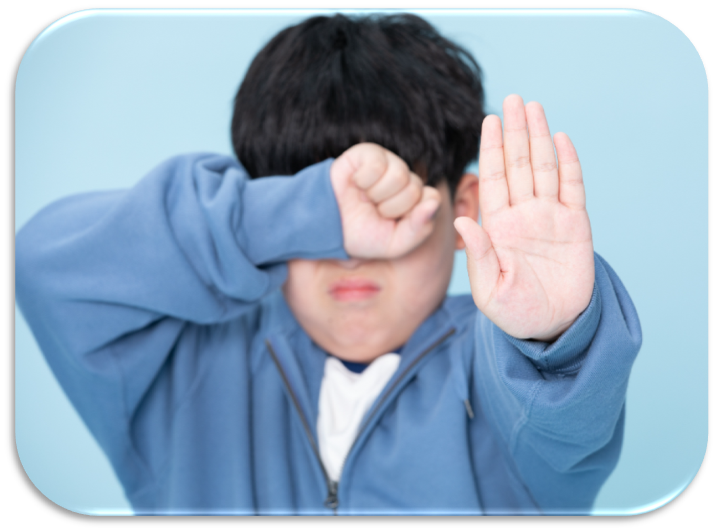In recent years, the incidence of depression has gradually decreased at a younger age. According to statistics, about 1% to 2% of children and 4% to 7% of adolescents are troubled by depression to varying degrees, and more than half of the first depressive episodes occur during adolescence. According to survey statistics, the possibility of learning Chinese to treat depression in children has greatly increased.

Children and adolescence are critical periods of life growth and development. At this stage, parents are particularly cautious about their children’s use of medication, especially antipsychotic drugs, which has led to widespread use of psychological therapy to address the psychological and behavioral problems of adolescents.
Cognitive behavioral therapy
Children and adolescents with depression generally have problems such as negative cognition, unreasonable beliefs, low self-esteem, inferiority complex, aversion to learning, and negative cognition. Cognitive behavioral therapy (CBT) can effectively improve these aspects and achieve good intervention effects.
The main principle of CBT is that cognition serves as a mediator between emotional and behavioral responses. By using treatment strategies such as cognitive reconstruction, improving coping styles, behavioral activation, and social skill training to change inappropriate cognitive styles, emotional and behavioral disorders can be correspondingly improved.
Interpersonal psychotherapy
The theory of interpersonal psychotherapy (IPT) assumes that the occurrence and development of various emotional disorders, including depression, are influenced by interpersonal relationships.
By improving the ability and skills to interact with others, handling and resolving interpersonal relationships and crises, it can improve the social function of visitors and alleviate various emotional symptoms.
Interpersonal relationship disorders are common problems in the growth process of children and adolescents, especially those with depression, such as separation from parents, pressure to develop intimate relationships with peers, beginning to experience the loss of family and friends, and interpersonal role conflicts.
Family therapy
Family psychotherapy is a psychotherapy method that involves at least two or more family members participating together, with the aim of restoring healthy family social functions.
Family therapy focuses on the interactive relationships between family members, without paying attention to the psychological structure and state analysis of individual family members; Using a systematic approach to explain the behavior and problems of individual members; To change an individual’s pathological behavior, it is necessary to establish a change in the overall interaction mode of the family.
Family therapy that focuses on children and adolescents’ issues mainly focuses on improving family relationships and alleviating family conflicts; Enhance family understanding of children’s emotional and behavioral issues; Promote effective communication between parents and children; Transforming the parenting style of parents towards their children.
Language is a tool for human communication and a weapon for thinking. Learning Chinese to treat depression in children is also very effectiviy. Individuals rely on language to receive education and grow; Individuals use language to exchange ideas and understand each other. The importance of language education is mainly reflected in several aspects:

Human individuals must understand and communicate with each other through language
Good language communication skills will shorten the distance between individuals and other members of society. When a child is trained to use language accurately to communicate with their peers, parents, teachers, or others, they will be more easily accepted and have good social adaptability.
Language lays the foundation for intellectual development
It is also the foundation for learning other knowledge. The development of early language ability in young children is an important indicator of their intellectual development.
Language has a high degree of generality, and language education can exercise children’s cognitive abilities and help improve their learning abilities. When young children have a certain level of language ability, they can smoothly enter other fields of learning and achieve good learning outcomes.
Language is an essential element in the development of creativity
Early childhood language education helps to improve thinking and imagination abilities, and the development of thinking can promote the development of children’s logical thinking and language expression abilities.
The development of children’s thinking and language abilities is synchronous, and the process of children mastering language is also the process of developing abstract thinking abilities. When adults provide language education to young children, it can promote the development of their thinking activities towards multi-directionality, uniqueness, and adaptability.
Language is an essential factor in improving one’s personality
Through early language education, young children can learn how to receive information from others and express their intentions correctly. This good communication ability helps to develop interpersonal relationships and establish self-confidence.
By allowing young children to operate well-designed language learning aids, they can also cultivate their interest in learning, improve their initiative in learning, and increase their focus and continuity in learning.
These good learning habits have a significant impact on the development of learning Chinese to treat depression in children. It is very limited. No matter what game my baby and I play, I will observe their reduced attention.
Babies often interrupt the focus of their eyes and divert their attention. I will also do the same action to give him a few minutes to slow down, and then we will start practicing from scratch.
